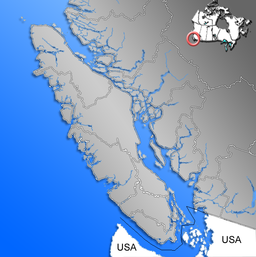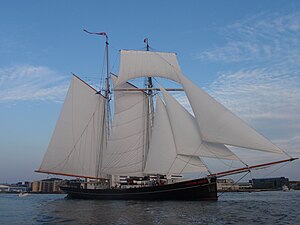Critical consciousness
Critical consciousness, conscientization, or conscientização in Portuguese, is a popular education and social concept developed by Brazilian pedagogue and educational theorist Paulo Freire, grounded in post-Marxist critical theory. Critical consciousness focuses on achieving an in-depth understanding of the world, allowing for the perception and exposure of social and political contradictions. Critical consciousness also includes taking action against the oppressive elements in one's life that are illuminated by that understanding.[1]
Coinage
The English term conscientization is a translation of the Portuguese term conscientização, which is also translated as "consciousness raising" and "critical consciousness". The term was popularized by Brazilian educator, activist, and theorist Paulo Freire in his 1970 work Pedagogy of the Oppressed. Freire was teaching the poor and illiterate members of Brazilian society to read at a time when literacy was a requirement for suffrage and dictators ruled many South American countries. The term originally derives from Frantz Fanon's coinage of a French term, conscienciser, in his 1952 book, Black Skins, White Masks.
Overview
Paulo Freire defines critical consciousness as the ability to intervene in reality in order to change it.[2] Critical consciousness proceeds through the identification of "generative themes", which Freire identifies as "iconic representations that have a powerful emotional impact in the daily lives of learners." In this way, individual consciousness helps end the "culture of silence" in which the socially dispossessed internalize the negative images of themselves created and propagated by the oppressor in situations of extreme poverty. Liberating learners from this mimicry of the powerful, and the fratricidal violence that results therefrom is a major goal of critical consciousness. Critical consciousness is a fundamental aspect of Freire's concept of popular education.
Arlene Goldbard, an author on the subject of community cultural development finds the concept of conscientization to be a foundation of community cultural development. From the glossary of Goldbard's 2006 book New Creative Community: "Conscientization is an ongoing process by which a learner moves toward critical consciousness. This process is the heart of liberatory education. It differs from "consciousness raising" in that the latter may involve transmission of preselected knowledge. Conscientization means engaging in praxis, in which one both reflects and takes action on their social reality to break through prevailing mythologies and reach new levels of awareness—in particular, awareness of oppression, being an "object" of others’ will rather than a self-determining "subject". The process of conscientization involves identifying contradictions in experience through dialogue and becoming part of the process of changing the world."[3]
History of application
The ancient Greeks first identified the essence of critical consciousness when philosophers encouraged their students to develop an "impulse and willingness to stand back from humanity and nature... [and] to make them objects of thought and criticism, and to search for their meaning and significance.[4] In his books Pedagogy of the Oppressed[5] and Education for Critical Consciousness,[2] Freire explains critical consciousness as a sociopolitical educative tool that engages learners in questioning the nature of their historical and social situation, which Freire addressed as "reading the world". The goal of critical consciousness, according to Freire, should be acting as subjects in the creation of democratic society. In education, Freire implies intergenerational equity between students and teachers in which both learn, both question, both reflect and both participate in meaning-making. Using this idea, and describing current instructional methods as homogenization and lockstep standardization, alternative approaches are proposed, such as the Sudbury model of democratic education schools, an alternative approach in which children, by enjoying personal freedom thus encouraged to exercise personal responsibility for their actions, learn at their own pace rather than following a previously imposed chronologically-based curriculum.[6][7][8] In a similar form students learn all the subjects, techniques and skills in these schools. The staff are minor actors, the "teacher" is an adviser and helps just when asked.[9][10] Sudbury model of democratic education schools maintain that values, social justice, critical consciousness, intergenerational equity, and political consciousness included, must be learned through experience,[11][12][13][14] as Aristotle said: "For the things we have to learn before we can do them, we learn by doing them."[15]
비판의식에 대한 프리어의 정의를 들으면서, Joe L. Kinchelo는 포스트포멀리즘에 관한 그의 연구에서 그 개념의 정의를 확장했다. 킨첼로의 공식화 포스트포멀리즘에서 인지학은 힘과 사회정의에 대한 비판적인 이론적 문제와 연결된다. 이러한 맥락에서 킨첼로는 의미, 즉 해방이라는 이념적 비문, 그리고 특히 자아의 사회정치적 구성에 초점을 두는 문제의식을 탐구하는 비판적 이론을 구성한다. 이러한 우려들을 염두에 두고 킨첼로의 사후적 비판 의식은 목적, 인간의 존엄성, 자유, 권위, 이성에 대한 재지각화된 관념, 지적 질, 사회적 책임에 대한 문제를 제기한다. 후기 비판 의식은 비판적 교육학과 사회, 문화, 정치, 경제, 심리, 철학적 관심사 사이의 대화를 자극한다. 킨첼로는 이러한 "다원론적 대화"를 이용하여 새로운 형태의 자기 인식, 보다 효과적인 형태의 사회적, 정치적, 교육적 행동, 그리고 진화하는 비판 의식의 탄력적인 모델을 형성한다(킨첼로와 스타인버그, 1993; 킨첼로, 1999; 토마스와 킨첼로, 2006).
Freire의 비판 의식의 발달은 여러 학문적 학문 및 공통 응용 분야에서 확장되었다.[16] 공중보건계의 협업이 여성의 HIV 예방, [17]성인교육에서 비판의식의 역할,[18] 또래 압박이 흡연자[19] 프리레의 비판의식 개념에 미치는 영향 등에 초점을 맞춘 것은 부분적으로 정치적 의식의 일종이다.
청소년과 청소년을 위한 교육 프로그램에서는 일부 강사들이 교과별 교과목 내에서 학생들이 비판의식을 키울 수 있도록 장려하기 위한 커리큘럼을 시행하고 있다.[20] 강사들은 어학,[21] 과학,[22] 사회과학[23] 수업을 하면서 학생들이 자신의 경험에 학문적 자료를 연결하고, 사회정의의 주제를 탐구하며, 이러한 아이디어들을 교실에서 협업적으로 토론하도록 지도할 수 있다.
신청 시 어린 학생들에게 비판의식을 고취하면 학생들의 사회감정적 행복,[24] 학업성취도,[25] 고교 졸업 후 진로추구 증가라는 측면에서 성공적인 결과로 이어질 수 있다.[26][27] 어떤 연구는 잠재적인 혜택으로 인해 학생들에게 비판의식을 발달시키는 데 도움을 주는 반면, 다른 연구들은 상반된 결과를 제시한다. 예를 들어, 연구는 또한 낮은 비판적 의식 수준을 보여주는 학생들이 덜 우울한 기분과[28] 더 높은 점수를 경험할 수 있다는 것을 보여주었다.[29] 교육에서 비판의식에 대한 많은 연구의 주로 질적 설계와 관련된 한계로 인해, 비판의식과 어린 학생들의 궤적 사이의 관계를 보다 명확하게 이해하기 위해 엄격하고 통제된 정량적 설계를 사용하여 추가 연구가 필요하다.[20]
참고 항목
참조
- ^ 무스타코바-포자르드, M(2003) "비판적 의식의 로드맵이 있는가? 비판의식: 세계, 역사적 맥락에서의 도덕에 관한 연구." 한 나라. 15(2)
- ^ a b Freire, P. (2005) 비판의식을 위한 교육. 뉴욕: Continuum International Publishing Group.
- ^ Creative Communication 2014-10-18 Wayback Machine New Village Press에 보관.
- ^ Torton, B. Watson, B. (2006) Civil Education and Culture의 "중대한 의식과 자유교육"
- ^ 프레이어, P. (1970) 억압받는 자의 교육학. 뉴욕: 컨티넘.
- ^ 그린버그, D. (1992년). "특별한 교육" -- 미국 교육, 표준화에 희생된 숭고한 명분 -- 서드베리 밸리에서 본 견해.
- ^ 그린버그, D. (1992년). "특별한 교육" -- 미국의 교육, 아목의 달림 -- 서드베리 계곡의 풍경.
- ^ 그린버그, D. (1987) 제1장, 그리고 '산술, 마지막에는 무료 - 서드베리 밸리 스쿨,
- ^ Greenberg, D. (1987), Chapter 19, Learning, Free at Last -- The Sudbury Valley School.
- ^ Greenberg, H. (1987). The Art of Doing Nothing, Archived 2011-05-11 at the Wayback Machine The Sudbury Valley School Experience. Accessed November 29, 2008.
- ^ Greenberg, D. (1992). 'Ethics' is a Course Taught By Life Experience, Education in America - A View from Sudbury Valley.
- ^ Greenberg, D. (1987). Teaching Justice Through Experience, The Sudbury Valley School Experience.
- ^ Greenberg, D. (1987). Chapter 35, With Liberty and Justice for All, Free at Last -- The Sudbury Valley School. Accessed November 29, 2008.
- ^ Greenberg, D. (1992). Democracy Must be Experienced to be Learned, Education in America - A View from Sudbury Valley.
- ^ Bynum, W.F. and Porter, R. (eds) (2005). Oxford Dictionary of Scientific Quotations. Oxford University Press. 21:9.
- ^ Adelson, L (1987) "Contemporary Critical Consciousness: Peter Sloterdijk, Oskar Negt/Alexander Kluge, and the 'New Subjectivity'." German Studies Review. 10(1); pp. 57-68.
- ^ Champeau, D. & Shaw, S. (2002) "Power, empowerment, and critical consciousness in community collaboration: Lessons from an advisory panel for an HIV awareness media campaign for women." Women Health. 36(3):31-50.
- ^ Taylor, E., Tisdell, E. & Stone Hanley, M. (2000) The Role of Positionality in Teaching for Critical Consciousness: Implications for Adult Education. Paper presented at the 2000 Adult Education Research Conference in Vancouver, British Columbia.
- ^ Zucker, A., Stewart, A., Pomerleau, C. & Boyd, C. (2005) "Resisting Gendered Smoking Pressures: Critical Consciousness as a Correlate of Women's Smoking Status," Behavioral Science. 53(3-4); 261-272.
- ^ a b Herbele, Amy E.; Rapa, Luke J.; Farago, Flora (2020). "Supplemental Material for Critical Consciousness in Children and Adolescents: A Systematic Review, Critical Assessment, and Recommendations for Future Research". Psychological Bulletin. doi:10.1037/bul0000230.supp. ISSN 0033-2909.
- ^ Tyson, Cynthia A. (2002-01-01). ""Get Up Offa That Thing": African American Middle School Students Respond to Literature to Develop a Framework for Understanding Social Action". Theory & Research in Social Education. 30 (1): 42–65. doi:10.1080/00933104.2002.10473178. ISSN 0093-3104. S2CID 144251236.
- ^ Kozan, Saliha; Blustein, David L.; Barnett, Michael; Wong, Catherine; Connors-Kellgren, Alice; Haley, James; Patchen, Amie; Olle, Chad; Diemer, Matthew A.; Floyd, Ava; Tan, R. P. Benjamin (2017-08-10). "Awakening, Efficacy, and Action: A Qualitative Inquiry of a Social Justice-Infused, Science Education Program: Awakening, Efficacy, and Action". Analyses of Social Issues and Public Policy. 17 (1): 205–234. doi:10.1111/asap.12136.
- ^ Schindel Dimick, Alexandra (2016-06-30). "Exploring the Potential and Complexity of a Critical Pedagogy of Place in Urban Science Education: EXPLORING CRITICAL PEDAGOGY OF PLACE". Science Education. 100 (5): 814–836. doi:10.1002/sce.21233.
- ^ Clonan-Roy, Katie; Jacobs, Charlotte E.; Nakkula, Michael J. (2016-03-15). "Towards a Model of Positive Youth Development Specific to Girls of Color: Perspectives on Development, Resilience, and Empowerment". Gender Issues. 33 (2): 96–121. doi:10.1007/s12147-016-9156-7. ISSN 1098-092X. S2CID 147108672.
- ^ Perez-Gualdron, Leyla M. (2013). "Social Justice Orientation, Cultural Variables, and Academic Outcomes in Latina/o Students: A Longitudinal Study". doi:10.1037/e588042013-001. Cite journal requires
journal=(help) - ^ Heberle, Amy E.; Rapa, Luke J.; Farago, Flora (2020). "Critical consciousness in children and adolescents: A systematic review, critical assessment, and recommendations for future research". Psychological Bulletin. 146 (6): 525–551. doi:10.1037/bul0000230. PMID 32271028.
- ^ Olle, Chad D.; Fouad, Nadya A. (2015). "Parental Support, Critical Consciousness, and Agency in Career Decision Making for Urban Students". Journal of Career Assessment. 23 (4): 533–544. doi:10.1177/1069072714553074. S2CID 144926269.
- ^ Godfrey, Erin B.; Burson, Esther L.; Yanisch, Tess M.; Hughes, Diane; Way, Niobe (March 2019). "A bitter pill to swallow? Patterns of critical consciousness and socioemotional and academic well-being in early adolescence". Developmental Psychology. 55 (3): 525–537. doi:10.1037/dev0000558. ISSN 1939-0599. PMID 30802104. S2CID 73496193.
- ^ Diemer, Matthew A.; Voight, Adam M.; Marchand, Aixa D.; Bañales, Josefina (March 2019). "Political identification, political ideology, and critical social analysis of inequality among marginalized youth". Developmental Psychology. 55 (3): 538–549. doi:10.1037/dev0000559. ISSN 1939-0599. PMID 30802105. S2CID 73486430.
Further reading
- Paulo Freire
- "Educação como prática da liberdade, Paz e Terra" (Rio de Janeiro, Brazil) (1967) translation by Myra Bergman Ramos published as "Education and the Practice of Freedom" in Education for Critical Consciousness, Seabury, 1973.
- "¿Extensión o comunicación?", Institute for Agricultural Reform (Santiago) (1969) translation by Louise Bigwood and Margaret Marshall published as "Extension or Communication," in Education for Critical Consciousness, Seabury, 1973.
- "Education for Critical Consciousness" (includes "Education as the Practice of Freedom" and "Extension or Communication"), Seabury, 1973, published in England as Education, the Practice of Freedom, Writers and Readers Publishing Cooperative, 1976.
- Other
- Thomas, P. and J. Kincheloe "Reading, Writing, and Thinking: The Postformal Basics." Rotterdam, Sense Publishers, 2006.
- Kincheloe, J. and S. Steinberg "A Tentative Description of Post-formal Thinking: The Critical Confrontation with Cognitive Theory." Harvard Educational Review, 63.2 (Fall 1993), pp. 296–320.
- Kincheloe, J. "Trouble Ahead, Trouble Behind: Grounding the Post-formal Critique of Educational Psychology," in J. Kincheloe, S. Steinberg, and P. Hinchey, "The Postformal Reader: Cognition and Education." NY: Falmer, 1999.
- Kirylo, James D. Paulo Freire: The Man from Recife. New York: Peter Lang, 2011.


